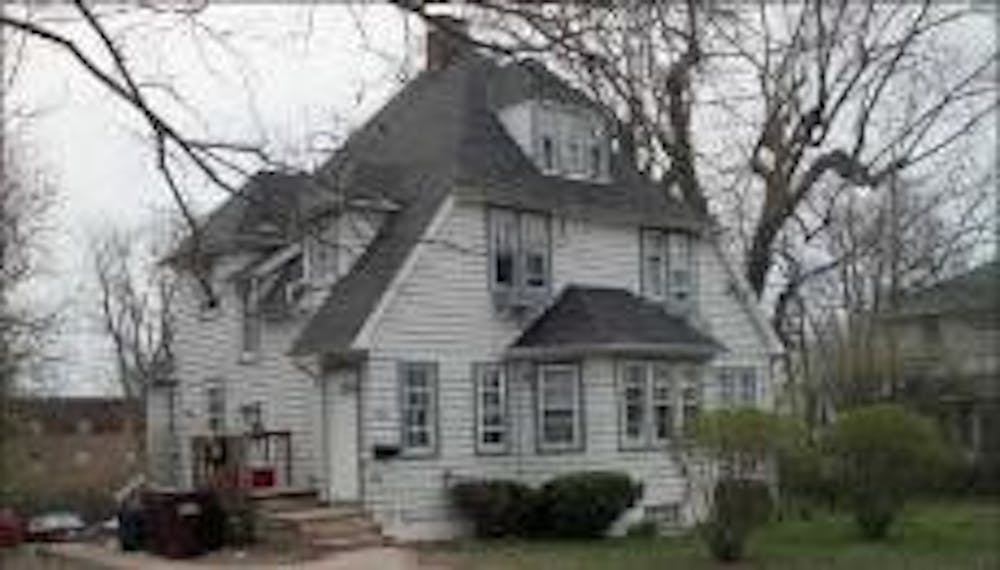
The house at 320 E. Vine St. (above) may be the future home for Miami University's chapter of the Chi Psi fraternity.
The fraternity Chi Psi is making progress in attempts to renovate a Vine Street house to serve as its new fraternity house.
The Oxford City Planning Commission approved the request to remodel the house at 320 E. Vine St. to become the Chi Psi fraternity house by a vote of 4-2.
The house is currently a two-family rental, and the zoning permit for the area is for single- and two-family residences, so in order to renovate the house to accommodate more residents, the chapter has to seek approval through the planning commission and the city council.
The chapter, which started at Miami in 2005, does not currently have a house in Oxford.
"The brotherhood is relatively new," Dearth said. "They are probably scattered in eight or 10 private residences in the university area."
The major concern commission members of the commission voiced at the meeting is the preservation of the historical character of the house.
The house was built in 1927 and has a distinct architecture that some planning commission members said they wish to keep.
"We're doing everything we can to preserve the character and enhance the character of the front of the building," Dearth said. "Its a challenge."
According to Dearth, the fraternity plans to keep the front facade, as well as make the expansion of the building relatively subtle.
"We don't want the addition in the back overpowering the facade in the front," Dearth said.
Enjoy what you're reading?
Signup for our newsletter
Several members of the planning commission expressed concern regarding a fraternity house being put in a residential area near where families may live.
"The emphasis should be on preserving single family homes and small neighborhoods," said Alysia Fischer, a member of the commission.
According to Fischer, the block to the east of the proposed location for the house is designated for fraternities. Fischer doesn't believe that the town should cater to the fraternities that wish to establish housing off-campus.
"I don't think that just because you are part of a national group, you have the right to live together off-campus," Fischer said.
Susan Kay, member of the commission, is concerned that putting a high-density house into a single and double family neighborhood will take away from the family centered feel of the neighborhood.
"Unless you have some pockets that are smaller and less dense, it seems that that contributes to turning the entire area into one giant party zone, and I don't think any of us want that kind of contagion to spread," Kay said.
According to Fischer, the house would go from housing two families, an estimated eight people to housing the fraternity, an estimated 24 people.
"I can't say that tripling the number of people will not have an adverse effect," Fischer said.
Richard Keebler, member of the planning commission, did not agree that the use of the house by the fraternity would be detrimental to the city.
"This town is supposed to support fraternities," Keebler said.
David Prytherch, member of the planning commission, also said the fraternity should be given an equal chance for the approval of the conditional use, claiming that the group's argument should be heard.




